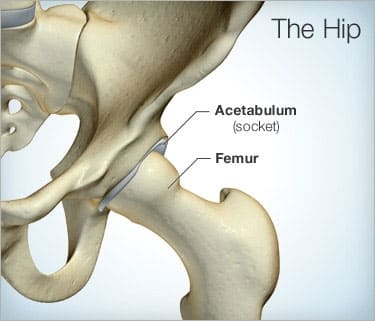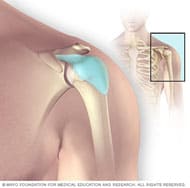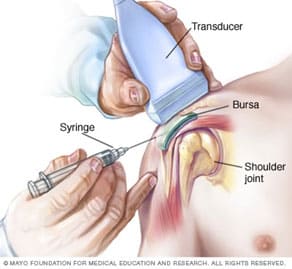Hip Joint Pain
10
July
2021

The hip joint can withstand repeated motion and a fair amount of wear and tear. This ball-and-socket joint -- the body's largest -- fits together in a way that allows for fluid movement.
Whenever you use the hip (for example, by going for a run), a cushion of cartilage helps prevent friction as the hip bone moves in its socket.!
Overview
Despite its durability, the hip joint isn't indestructible. With age and use, the cartilage can wear down or become damaged. Muscles and tendons in the hip can get overused. Bones in the hip can break during a fall or other injury. Any of these conditions can lead to hip pain.
If your hips are sore, here is a rundown of what might be causing your discomfort and how to get hip pain relief.
Causes of Hip Pain
These are some of the conditions that commonly cause hip pain:
-
Osteoarthritis and rheumatoid arthritis are among the most common causes of hip pain, especially in older adults. Arthritis leads to inflammation of the hip joint and the breakdown of the cartilage that cushions your hip bones. The pain gradually gets worse. People with arthritis also feel stiffness and have reduced range of motion in the hip. Learn more about hip osteoarthritis.
-
Hip fractures. With age, the bones can become weak and brittle. Weakened bones are more likely to break during a fall. Learn more about hip fracture symptoms.
Your skin may become irritated if you shave or wax under your arms. Certain deodorants and laundry detergents might cause allergic reactions for certain people. This can result in a rash known as contact dermatitis. These skin conditions are usually minimal and only last for a short period.
However, rashes, pimples, and other skin disorders could indicate more significant health issues. For example, hidradenitis suppurativa is a chronic acne-like illness that affects sweat glands (typically in the armpit or groin).
-

Bursae are sacs of liquid found between tissues such as bone, muscles, and tendons. They ease the friction from these tissues rubbing together. When bursae get inflamed, they can cause pain. Inflammation of bursae is usually due to repetitive activities that overwork or irritate the hip joint. Learn more about bursitis of the hip
-
Tendons are the thick bands of tissue that attach bones to muscles. Tendinitis is inflammation or irritation of the tendons. It's usually caused by repetitive stress from overuse. Learn more abouttendinitis symptoms. (Watson, 2020)
-
Muscle or tendon strain.
Repeated activities can put strain on the muscles, tendons, and ligaments that support the hips. When they become inflamed due to overuse, they can cause pain and prevent the hip from working normally. Learn about the best stretches for tight hip muscles.
-
Hip labral tear.
This is a rip in the ring of cartilage (called the labrum) that follows the outside rim of the socket of your hip joint. Along with cushioning your hip joint, your labrum acts like a rubber seal or gasket to help hold the ball at the top of your thighbone securely within your hip socket. Athletes and people who perform repetitive twisting movements are at higher risk of developing this problem. Learn more about hip labral tears.
-
Cancers.
Tumors that start in the bone or that spread to the bone can cause pain in the hips, as well as in other bones of the body. Learn more about bone tumors.
Avascular necrosis (also called osteonecrosis).
This condition happens when blood flow to the hip bone slows and the bone tissue dies. Although it can affect other bones, avascular necrosis most often happens in the hip. It can be caused by a hip fracture or dislocation, or from the long-term use of high-dose steroids (such as prednisone), among other causes.
Injuries
Bursitis
This is a very painful condition that can affect the small fluid – filled sacs where the cushion of the bones, the muscles near the joints and the tendons become inflamed. The most common locations for the bursitis are in the shoulder, hip and elbow. Bursitis can also happen in the knee, base of the big toe and the heel. It can also occur near the joints that perform repetitive movement. Bursitis treatment involves resting the affected join and protecting it from another trauma. Bursitis pain can go away in few weeks when taken proper treatment, but the flare ups are common. (Staff, 2020)
Symptoms
If the patient has bursitis, the affected joint might:
look swollen and red
feel achy and stiff
hurt more when the person moves
Causes
The most common causes of bursitis are repetitive motions or positions that put pressure on the bursae around a joint. Examples include:
Throwing a baseball or lifting something over your head repeatedly
Leaning on your elbows for long periods
Extensive kneeling for tasks such as laying carpet or scrubbing floors
Other causes include injury or trauma to the affected area, inflammatory arthritis such as rheumatoid arthritis, gout and infection.
Risk factors
Anyone can develop bursitis, but certain factors can increase your risk:
Age. Bursitis becomes more common with aging.
Occupations or hobbies. If your work or hobby requires repetitive motion or pressure on particular bursae, your risk of developing bursitis increases. Examples include carpet laying, tile setting, gardening, painting and playing a musical instrument.
Other medical conditions. Certain systemic diseases and conditions — such as rheumatoid arthritis, gout and diabetes — increase your risk of developing bursitis. Being overweight can increase your risk of developing hip and knee bursitis.
Prevention
While not all types of bursitis can be prevented, you can reduce your risk and the severity of flare-ups by changing the way you do certain tasks. Examples include:
Using kneeling pads. Use some type of padding to reduce the pressure on your knees if your job or hobby requires a lot of kneeling.
Lifting properly. Bend your knees when you lift. Failing to do so puts extra stress on the bursae in your hips.
Wheeling heavy loads. Carrying heavy loads puts stress on the bursae in your shoulders. Use a dolly or a wheeled cart instead.
Taking frequent breaks. Alternate repetitive tasks with rest or other activities.
Maintaining a healthy weight. Being overweight places more stress on your joints.
Exercising. Strengthening your muscles can help protect your affected joint.
Warming up and stretching before strenuous activities to protect your joints from injury.
Symptoms of Hip Pain
Depending on the condition that's causing your hip pain, you might feel the discomfort in your:
Thigh
Inside of the hip joint
Groin
Outside of the hip joint
Buttocks
Sometimes pain from other areas of the body, such as the back or groin (from a hernia), can radiate to the hip.
You might notice that your pain gets worse with activity, especially if it's caused by arthritis. Along with the pain, you might have reduced range of motion. Some people develop a limp from persistent hip pain.
Hip Pain Relief

If your hip pain is caused by a muscle or tendon strain, osteoarthritis, or tendinitis, you can usually relieve it with an over-the-counter pain medication such as acetaminophen or a nonsteroidal anti-inflammatory drug such as ibuprofen or naproxen.
Rheumatoid arthritis treatments also include prescription anti-inflammatory medications such as corticosteroids, disease-modifying anti-rheumatic drugs (DMARDs) like methotrexate and sulfasalazine, and biologics, which target the immune system.
Another way to relieve hip pain is by holding ice to the area for about 15 minutes a few times a day. Try to rest the affected joint as much as possible until you feel better. You may also try heating the area. A warm bath or shower can help ready your muscle for stretching exercises that can lessen pain.
If you have arthritis, exercising the hip joint with low-impact exercises, stretching, and resistance training can reduce pain and improve joint mobility. For example, swimming is a good non-impact exercise for arthritis. Physical therapy can also help increase your range of motion.
When osteoarthritis becomes so severe that the pain is intense or the hip joint becomes deformed, a total hip replacement (arthroplasty) may be a consideration. People who fracture their hip sometimes need surgery to fix the fracture or replace the hip.
Call your health care provider if your pain doesn't go away, or if you notice swelling, redness, or warmth around the joint. Also call if you have hip pain at night or when you are resting.
Get medical help right away if:
The hip pain came on suddenly.
Your joint looks deformed or is bleeding.
You heard a popping noise in the joint when you injured it.
The pain is intense.
You can't put any weight on your hip.
You can't move your leg or hip.
Diagnosis
Doctors can often diagnose bursitis based on a medical history and physical exam. Testing, if needed, might include:
Imaging tests.
X-ray images can't positively establish the diagnosis of bursitis, but they can help to exclude other causes of your discomfort.
Ultrasound or MRI might be used if your bursitis can't easily be diagnosed by a physical exam alone.
Lab tests. Your doctor might order blood tests or an analysis of fluid from the inflamed bursa to pinpoint the cause of your joint inflammation and pain.
Medication. If the inflammation in your bursa is caused by an infection, your doctor might prescribe an antibiotic.
Therapy. Physical therapy or exercises can strengthen the muscles in the affected area to ease pain and prevent recurrence.
Injections. A corticosteroid drug injected into the bursa can relieve pain and inflammation in your shoulder or hip. This treatment generally works quickly and, in many cases, one injection is all you need.
Assistive device. Temporary use of a walking cane or other device will help relieve pressure on the affected area.
Surgery. Sometimes an inflamed bursa must be surgically drained, but only rarely is surgical removal of the affected bursa necessary.
References
Staff, M. C. (2020, July 21). Mayo Clinic - Bursitis. Retrieved from mayoclinic.org:
https://www.mayoclinic.org/diseases-conditions/bursitis/symptoms-causes/syc-20353242
Watson, S. (2020, March 15). Hip Pain: Causes and Treatment. Retrieved from
https://www.webmd.com/pain-management/guide/hip-pain-causes-and-treatment
If you or anyone you know is suffering from pain, call us today on (469) 562 4188 to book an appointment with our expert doctors.